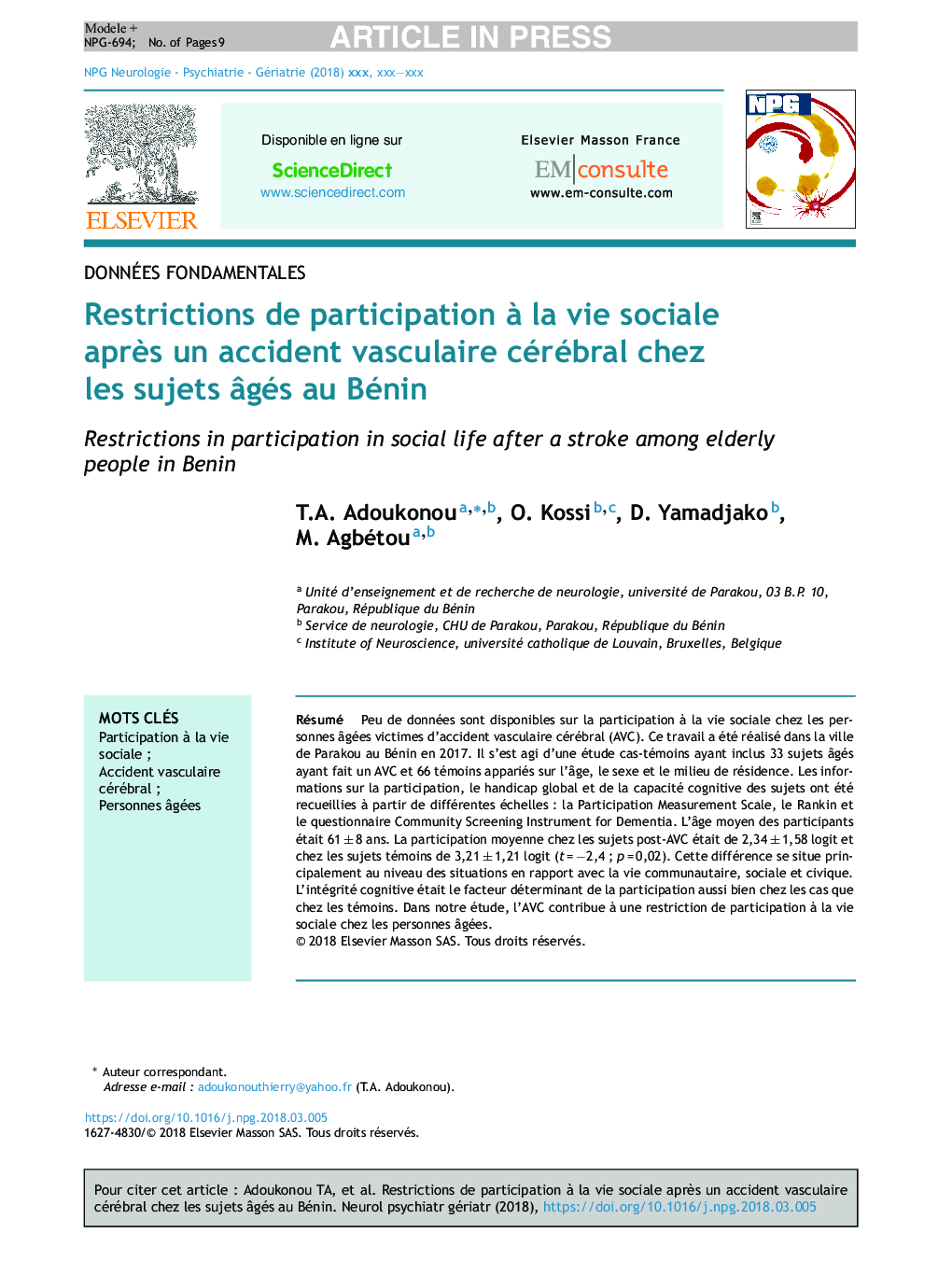| Article ID | Journal | Published Year | Pages | File Type |
|---|---|---|---|---|
| 8732672 | NPG Neurologie - Psychiatrie - Gériatrie | 2018 | 9 Pages |
Abstract
Cerebrovascular accident (stroke) is a serious condition because of the relatively high mortality and the considerable disability that it causes. To date, very few studies have investigated the participation in social life among older adults having had a stroke. This study was conducted in Parakou, Benin, in 2017. It was a case-control study which included 33 post-stroke subjects and 66 controls matched for gender, age and living environment. Information on the participants' levels of participation in social life, overall disability, and cognitive status were collected using the Participation Measurement Scale, the modified Rankin Scale, and the Community Screening Interview for Dementia (CSI-D), respectively. The mean age of participants was 61 ± 8 years. The average participation score among cases was 2.34 ± 1.58 logit, significantly lower than that of the controls which was 3.21 ± 1.21 logit (t = â2.4 ; P = 0.02). The differences in levels of participation between cases and controls mainly related to community, social and civic life. Cognitive integrity was the main factor determining participation in social life in both groups. This study has shown that differences in participation in social life between the post-stroke adult subjects and controls appear more pronounced in situations related to community, social and civic life. The restrictions in participation observed appear to be related to cognitive deficits.
Related Topics
Health Sciences
Medicine and Dentistry
Geriatrics and Gerontology
Authors
T.A. Adoukonou, O. Kossi, D. Yamadjako, M. Agbétou,
